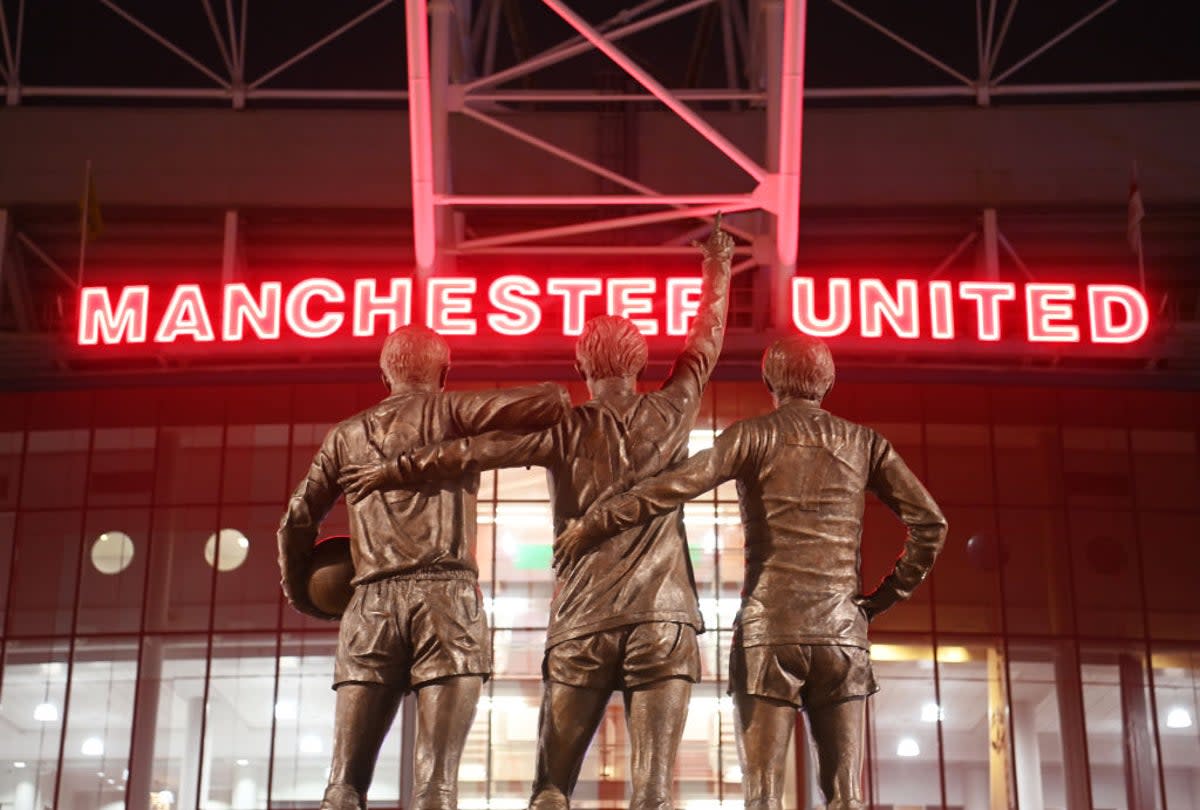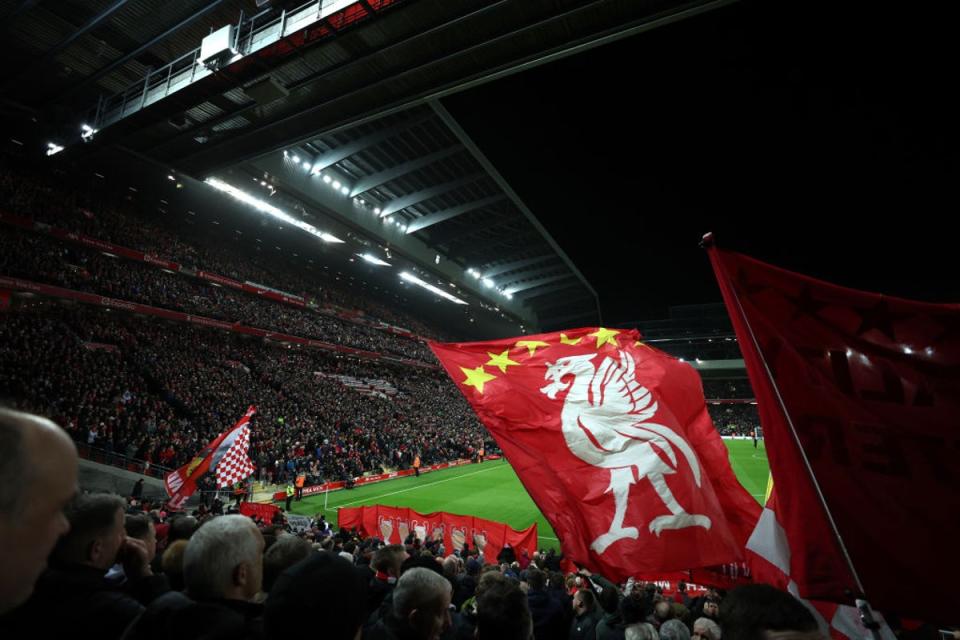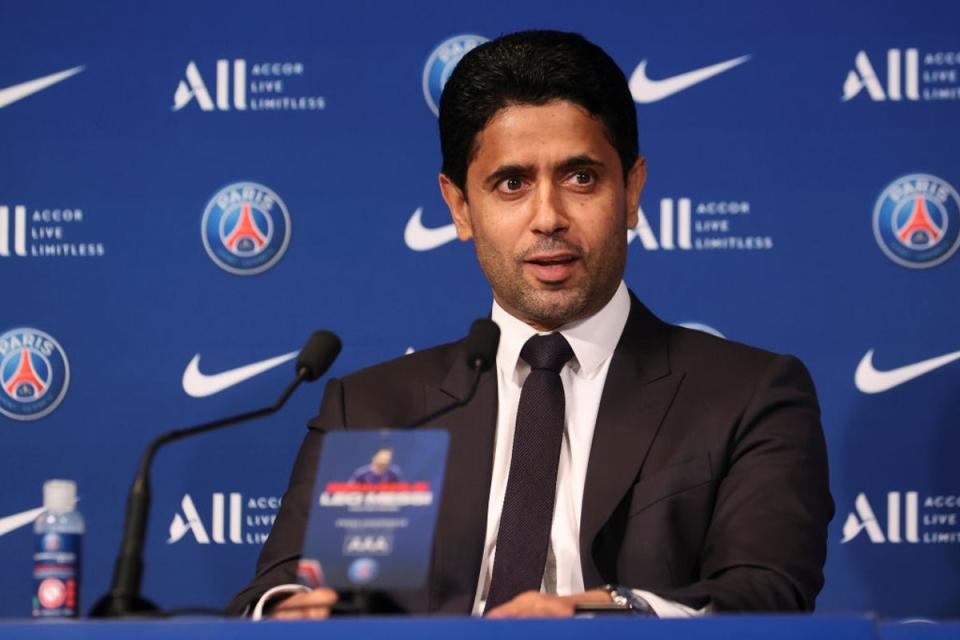Entwined Qatari ownership would make Man United a flagship for sportswashing states

With just under two hours to go until the Glazers’ soft deadline on bids for Manchester United, there was the second hard development in this process - and one that should be very difficult for the wider game to register. Qatari businessman Sheikh Jassim Bin Hamad Al Thani confirmed his interest in buying 100 per cent of the club, to go with that of Sir Jim Ratcliffe.
Connected sources and reports in France indicated that the Al Thani offer is around €5bn (£4.45bn). That would leave it short of what the Glazers want, which was expected at this point, a stage described by insiders as “barely the opening salvo”. There was naturally chatter of a third bid, close to the 10pm UK deadline.
While the Qatari offer shocked some parties who had been considering getting involved - and never expected “a credible bid from the Middle East” - industry sources who told the Independent this would be successful on Thursday backed up that view and were already describing Al Thani's interest as “the favourite”.
Much will depend on how this auction develops, and a lot is unclear.
Another element that has been obfuscated is the exact links between Al Thani and the Qatari state - which should provoke some of the biggest questions around this process and for the Premier League.
Figures within Qatari Sports Investments (QSI) - who own Paris Saint-Germain - and Qatar Investments Authority (QIA) were insisting on Friday night that this had nothing to do with their funds and represented a “private” bid, but that is a description that human rights workers think is “laughable” in a state like Qatar.
Before you get to anything else, it is a semi-constitutional monarchy, where the Emir - a longtime Manchester United fan, it is said - exercises “full executive power”. In other words, all roads lead to the top, and a bid of this scale would of course require state sanctioning.
There are then the specifics of Al Thani’s career. One prominent football executive was almost incredulous at the argument, stating “this is not complicated, his name is Al Thani, that of the ruling family”.
The son of the former prime minister, the 40-year-old’s biography proudly describes him as the chairman of Qatar Islamic Bank (QIB). The single largest shareholder of QIB is QIA, the state sovereign wealth. Al Thani’s father was previously head of QIA between 2007 and 2013. It’s at this point the discussion warrants a lot more depth than Al Thani’s plans for restoring the club to “former glories”.
Since “sportswashing” is really about influence and the appropriation of institutions, and never about as simplistic as public relations or image, it’s difficult not to describe this takeover attempt as the next step in its evolution.
We are several levels beyond hosting international tournaments at this point.
It makes it all the more incredible, and an utter indictment, that the Premier League did not take the chance to upgrade its Owners and Directors as regards state bodies and influence. They had ample opportunity and warning in the 16 months since the Newcastle United takeover, and Amnesty International UK are on record as saying they are still waiting for a follow-up from an October 2021 meeting. The fact that its two most famous institutions, United and Liverpool, went up for sale at the same time should have only made the alarms louder.

It could now leave the damning situation where three of the Premier League’s clubs are either owned or influenced by the three major states that most immediately drove the Gulf blockade. This supposedly great English competition would become the preserve of a political rivalry that takes in far graver themes, not to mention the highly-criticised human rights records of those states.
It should be a landmark for the game, but we’re already well past that.
You only have to look at news from earlier in the week as to how this path was allowed - and the possibility of this takeover was even allowed.
The Public Investment Fund takeover of Newcastle was ludicrously passed through because the consortium was supposedly able to offer “legally binding assurances” that there would be separation between the body and the Saudi Arabian state. That “fantasy” - as one human rights worker declared it at the time - was rendered exactly that when PIF actually argued in a US court that they should receive sovereign immunity from having to turn over information connected to LIV Golf’s legal battle with the PGA as they were part of the Saudi government.
It’s a wonder how the Premier League would have dealt with this case if the regulations were even marginally upgraded - but they weren’t.
It might pose a question of Uefa, though. PSG are owned by QSI, who are of course a subsidiary of QIA. If Al Thani’s bid is successful, Uefa’s rules on ownership could feasibly mean United and PSG could not play in the same continental competition, as many figures within the game were arguing on Friday evening. And yet there was already confidence this would not represent an obstacle.

Uefa could of course seek to consult the European Club Association on this matter. But its president is also the president of PSG, and the chairman of QSI, not to mention a figure close to the Emir of Qatar: Nasser Al-Khelaifi.
You can start to see why LaLiga president Javier Tebas described the PSG boss as having “too many conflicts of interest”. You can also see the end point for the game, and how it got itself into this mess.
There is now the real possibility that English football’s biggest institution will become the biggest club yet that represent a sportswashing project.
In that context, they could win everything and it would mean nothing.
You could solemnly say this increases the need for an independent regulator. It's already too late, as this early stage of the United sale showed.


